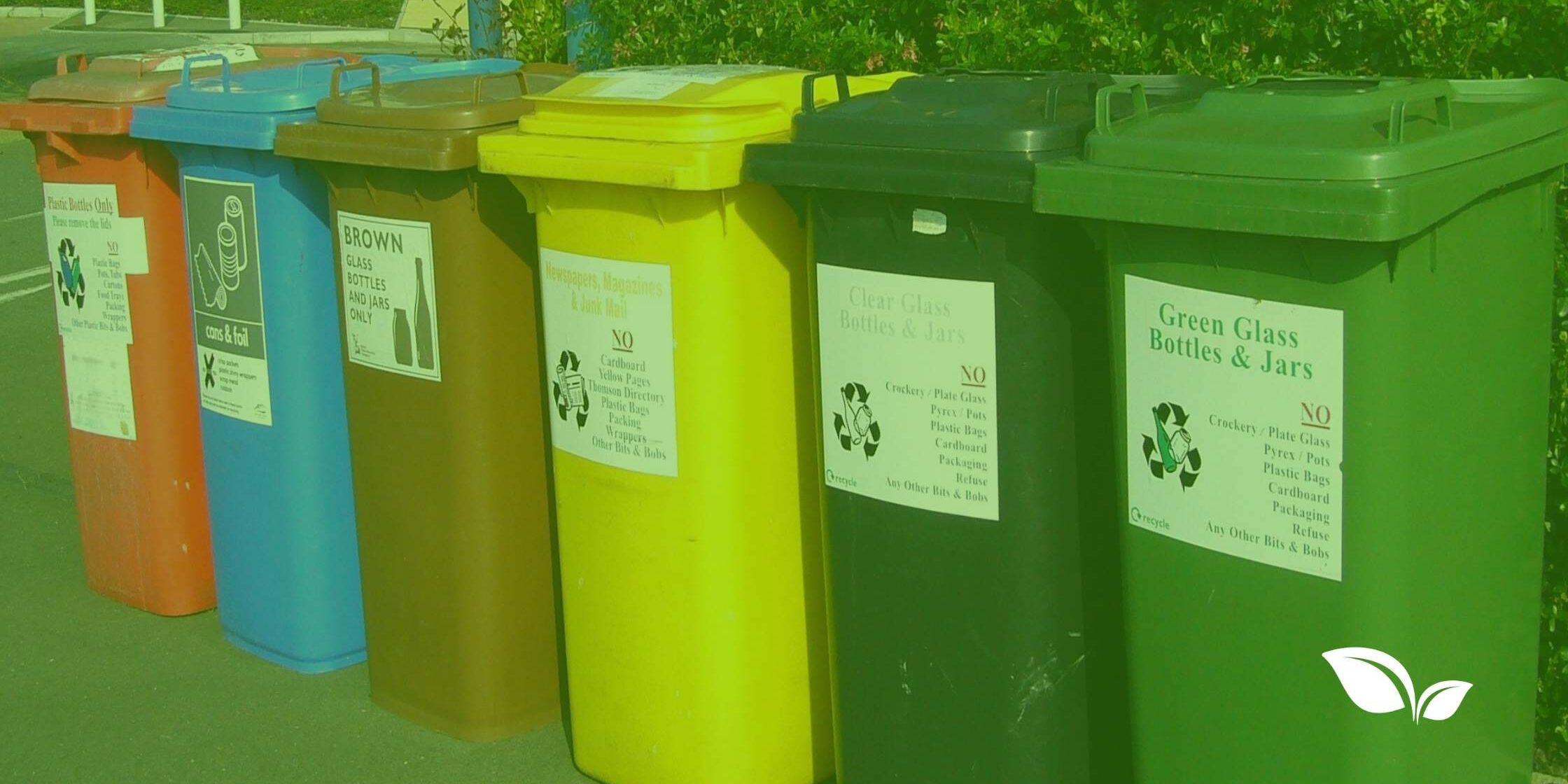Commercial recycling is any recyclable waste generated by businesses of all sizes, such as paper, cardboard, plastics, and cans.
Having a recycling collection system is vital for cost savings, legal compliance, and environmental responsibility.
If your business doesn’t yet have a recycling bin, you can quickly arrange one using our free quote tool to see how much you could save.
How Does My Business Generate Recyclable Waste?
Most businesses produce dry mixed recycling (DMR) daily. Recycling this waste instead of sending it to landfills via general waste lowers costs and reduces environmental impact.
Common recyclable materials include:
- Paper & Cardboard – newspapers, office paper, packaging, cartons
- Plastics – bottles, containers, packaging films, HDPE & PET products
- Metals – cans, foil, aerosols, jar lids
- Glass* – bottles, jars, containers
- Food* – scraps, peelings, expired food
Recycling is cheaper than general waste disposal and helps businesses to reduce their carbon footprint.
*Simpler Recycling legislation requires that businesses with 10+ employees must separate their glass and food waste from DMR.
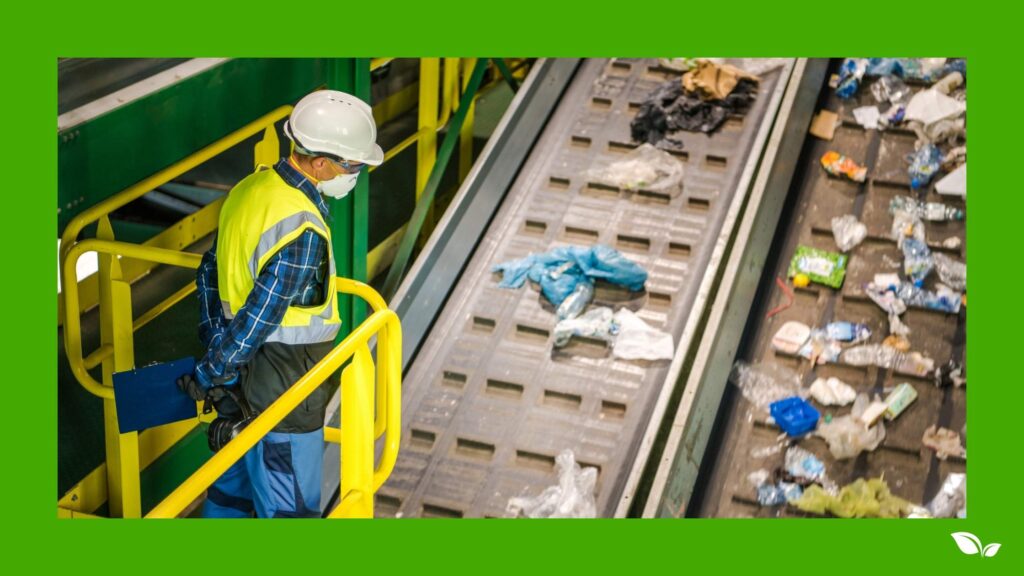
Why is Recycling Important?
1) Cost Savings
Recycling collections are cheaper than general waste, reducing overall disposal costs.
2) Legal Compliance
Businesses must now separate waste under the Environment Act 2021 and Simpler Recycling legislation 2025, or risk penalties.
3) Environmental Responsibility
Recycling reduces landfill use, lowers emissions, and preserves resources. For example, the UK has reduced the use of landfill sites by over 60% as a result of the landfill tax introduced in October 1996.
4) Brand Image
Customers value sustainability – 21% of Britons say they are willing to invest more in products that favour sustainability. Recycling helps to boost business reputation and Corporate Social Responsibility.
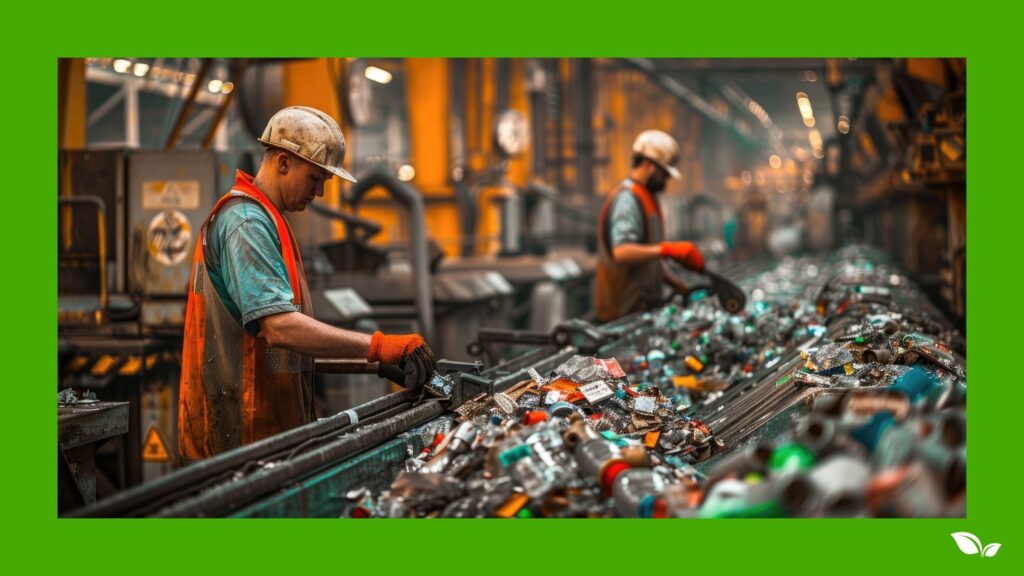
Why Do I Need Different Recycling Bins?
Simpler recycling legislation requires businesses to separate waste to increase recycling efficiency. While dry mixed recycling bins are still permitted, glass and food waste must now have their own bins.
Benefits of Separation:
- Efficiency – speeds up the recycling processing.
- Higher Recycling Rates – reduces contamination of waste streams and means that materials are diverted from landfills.
- Legal Compliance – avoids penalties & fines for you and your business.
- Stronger Brand Reputation – shows your business’s commitment to sustainability.
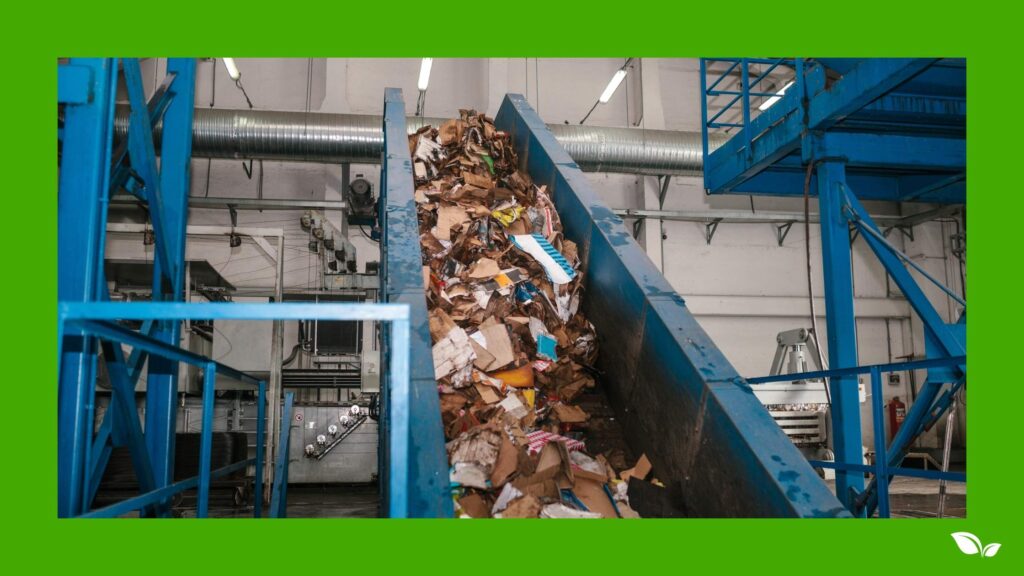
What Size Recycling Bin Do I Need?
The right bin depends on your waste volume and storage space.
- 240L bin – up to 10kg, a more compact bin (around 700 bottles).
- 330L bin – medium option for smaller businesses.
- 660L bin – up to 25kg (around 59 boxes or 2,500 bottles).
- 1100L bin – up to 40kg (around 115 cardboard boxes or 3,300 bottles).
If you are unsure, our team can recommend the best size at no additional cost.
Choosing the right bin size or adding a food waste bin can help keep your costs down.
Does My Business Legally Have to Recycle?
Yes. UK businesses are legally required to separate and manage waste responsibly.
Simpler Recycling legislation sets binding environmental targets, requiring businesses to separate recycling streams (dry mixed recycling, glass and food).
Failure to comply with Simpler Recycling can lead to penalties and fines.
Our team can provide free advice to ensure you remain compliant.
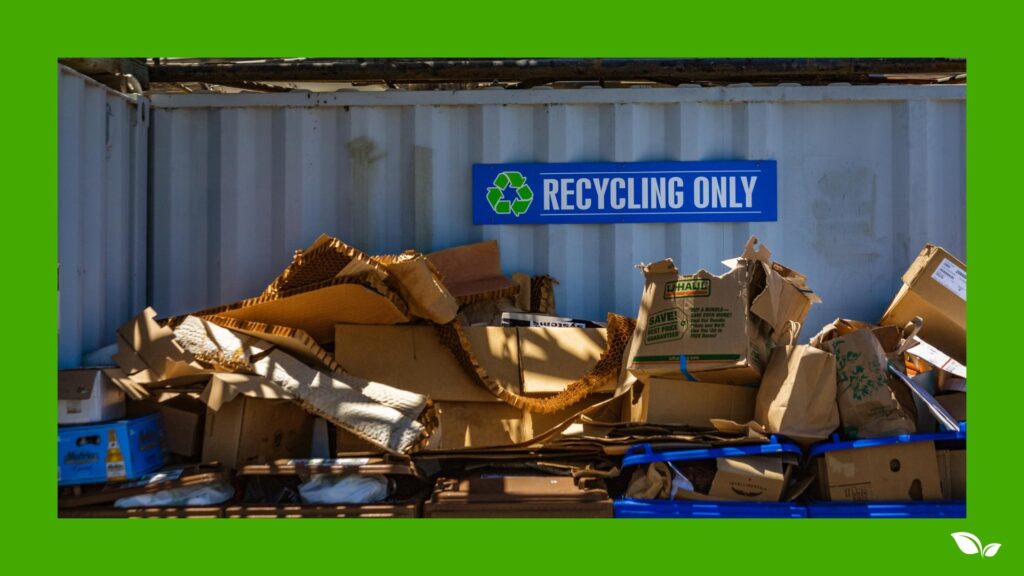
What Happens to My Recycling?
Here’s how our process works:
- Choose your bins – select the right size and frequency for you.
- Free delivery – we provide bins at no extra cost.
- Fill your bins – ensure you separate your recycling properly.
- Scheduled collections – tailored to your business needs.
We handle all compliance and logistics, so recycling is hassle-free.
You can manage your collections via our WB Hub!
FAQs
How can a business recycle?
By using the right bins (DMR, glass, and food) and arranging collections with a waste collection company like us.
How can we improve recycling?
- Place bins in accessible locations.
- Train staff on what goes where.
- Audit your waste streams regularly.
What are common recycling mistakes?
- Contamination – putting dirty containers or greasy food packaging into food waste or dry mixed recycling. These belong in a general waste bins.
- Wish cycling – putting materials that are non-recyclable in a recycling bin. Make sure you really can recycle the material before placing it in here. If in doubt, throw it in the general waste bin to avoid contamination.
- Plastic mistakes – not checking recycling codes. Make sure the type of plastic is actually recyclable!
- Electronics – these need a separate collection stream. Putting electronics in the wrong bin can cause fires in bin lorries and waste facilities, causing major damage and injuries to workers.
What are the new UK recycling laws?
From April 2025, businesses in England and Wales must separate food and glass waste into different bins, along with DMR and general waste bins.
What do plastic numbers mean?
Numbers 1-7 identify different plastic types. PET (1) and HDPE (2) are the most widely recycled, while PVC (3) is the hardest to recycle.
Why recycle?
It saves money, reduces landfill sites, meets legal obligations, and improves brand image.
Final Note
Commercial recycling helps your business cut costs, stay compliant, and show a genuine commitment to sustainability.
Whether you’re a small office or a large manufacturer, the right bins and collection schedule make all the difference.
At Waste Basics, we keep recycling simple, transparent, and affordable. Get your free quote today and see how much you could save.
